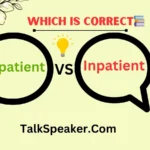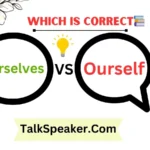Navigating English grammar can sometimes feel like walking through a maze. One common area of confusion involves the phrases “when I can” and “when can I.” Despite their apparent similarity, they serve different purposes in language and usage.
This comprehensive guide will demystify these phrases, offering clear explanations, practical examples, and engaging exercises to enhance your understanding and application.
Basic Definitions
Understanding “When I Can”
The phrase “when I can” is a statement about capability or availability. It suggests that something will happen or be done based on the speaker’s ability or opportunity. Here’s a breakdown:
- Definition: “When I can” refers to the time or condition under which the speaker is able to do something.
- Usage: It often follows a condition or a specific time when the speaker is available or capable.
Examples:
- “I will call you when I can.” (Here, the speaker is saying they will make the call whenever they are able to do so.)
- “I’ll help you with your project when I can.” (The help will be offered based on the speaker’s availability.)
Understanding “When Can I?”
The phrase “when can I” is a question that inquires about the appropriate time or opportunity for the speaker to perform an action. It’s used to seek information about timing or permission.
- Definition: “When can I” asks for the specific time or condition under which the speaker can do something.
- Usage: It is commonly used to request information or permission.
Examples:
- “When can I start the new assignment?” (The speaker is asking for the specific time they can begin the task.)
- “When can I see the results?” (The speaker is inquiring about the time they will be able to view the outcomes.)
Contextual Usage
When to Use “When I Can”
The phrase “when I can” is used in various contexts to indicate availability or capability. Understanding when to use it correctly can enhance clarity and precision in communication.
Situations and Examples
- Casual Context:
- “I’ll get back to you when I can.” (Casual setting, implying the speaker will respond when possible.)
- Professional Context:
- “I will review the documents when I can.” (Professional setting, indicating the review will happen as soon as the speaker is able.)
Comparison with Similar Phrases
- “As soon as I can”: Implies urgency and immediacy compared to “when I can,” which is more flexible.
- “Whenever I can”: Suggests a recurring or ongoing opportunity rather than a specific time.
When to Use “When Can I?”
The phrase “when can I” is used to request information or permission about timing. It’s essential for asking questions related to actions or events.
Situations and Examples
- Formal Inquiry:
- “When can I submit my application?” (Formal setting, asking for a specific submission time.)
- Informal Request:
- “When can I use your car?” (Informal setting, seeking permission to use the vehicle.)
Comparison with Similar Phrases
- “When should I”: Often used to seek advice rather than just timing.
- “What time can I”: More specific, asking for an exact time rather than a general timeframe.
Common Mistakes
Frequent Errors with “When I Can” and “When Can I?”
Mistakes often arise from misunderstanding the function of each phrase. Here are some common errors:
- Misusing “When I Can” as a Question:
- Incorrect: “When I can start the project?” (This should be “When can I start the project?”)
- Using “When Can I” Incorrectly:
- Incorrect: “When can I to meet you?” (The correct form is “When can I meet you?”)
Tips to Avoid These Mistakes
- Understand the Function: Remember, “when I can” is about stating capability, while “when can I” is about inquiring timing or permission.
- Practice with Examples: Regularly use both phrases in different contexts to build familiarity.
- Use Grammar Tools: Utilize online grammar checkers to catch mistakes and learn from corrections.
Mnemonics and Memory Aids
- For “When I Can”: Think of it as a statement of availability. Remember, it’s about what you will do when able.
- For “When Can I?”: Remember it’s a question. Use it to ask for specific timing or permission.
Exercises and Practice
Interactive Practice Sentences
- Fill-in-the-Blank Exercises:
- “I will visit you __________ I finish my work.”
- Options: (a) When I can (b) When can I
- “__________ submit the report?”
- Options: (a) When I can (b) When can I
- “I will visit you __________ I finish my work.”
- Sentence Rewriting Tasks:
- Rewrite the following sentences using “when I can” or “when can I”:
- “Tell me when I am able to start.”
- “I will answer you whenever I am available.”
- Rewrite the following sentences using “when I can” or “when can I”:
Answer Key with Explanations
- Fill-in-the-Blank Exercises:
- “I will visit you when I can.” (This is a statement of availability.)
- “When can I submit the report?” (This is a question asking for specific timing.)
- Sentence Rewriting Tasks:
- “Tell me when can I start?” (Asking for specific timing.)
- “I will answer you when I can.” (Statement about availability.)
Advanced Usage
Nuances and Subtleties
Understanding the subtleties between these phrases can deepen your grasp of English nuances:
- “When I can” in Conditional Sentences:
- “I will call you when I can, if the meeting is rescheduled.” (The ability to call depends on another condition.)
- “When Can I” in Formal Requests:
- “When can I expect a response to my application?” (Asking for precise timing in a formal context.)
Exceptions and Special Cases
- In Formal Writing: “When can I” is often preferred for clarity and politeness in requests.
- In Informal Speech: Both phrases can be used, but context will guide the choice.
Real-World Examples
Quotes from Literature and Media
- Literature:
- “When I can, I will embrace the opportunities that come my way.” – A common theme in motivational literature.
- Media:
- “When can I see the next episode of the series?” – Common in reviews and fan discussions.
Examples from Everyday Conversations
- Personal Use:
- “When I can, I’ll make sure to visit you next weekend.” (Casual conversation among friends.)
- Professional Use:
- “When can I schedule a meeting with you to discuss the project?” (Professional email inquiry.)
Summary and Recap
Understanding the difference between “when I can” and “when can I” is essential for clear and accurate communication. “When I can” expresses availability or capability, while “when can I” seeks specific information or permission. By mastering these phrases, you can avoid common mistakes and improve both your written and spoken English.
Conclusion
Correct usage of “when I can” and “when can I” can significantly enhance your clarity and effectiveness in communication. Keep practicing and applying these rules to ensure you use these phrases correctly in all contexts. If you have any examples or questions, feel free to share them!

Amelia Harris, a passionate educator, simplifies English grammar and vocabulary for learners of all levels. With her engaging style, mastering English has never been easie




